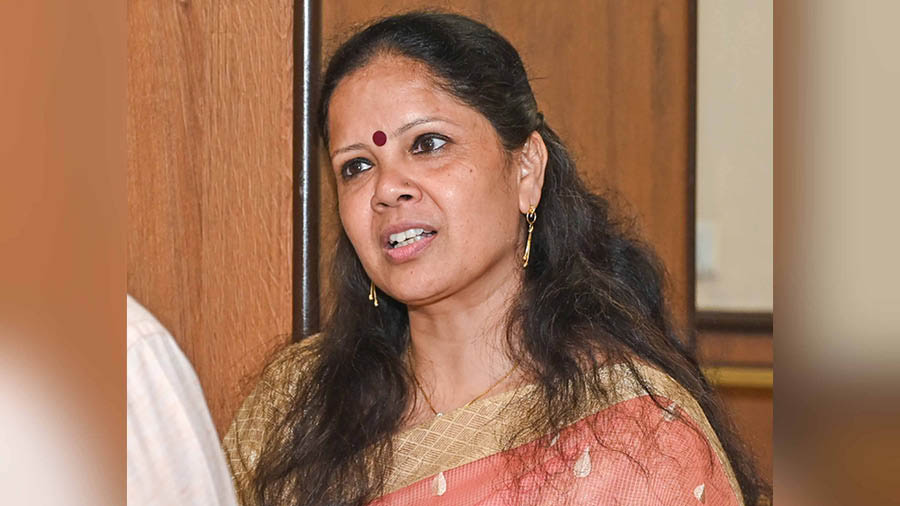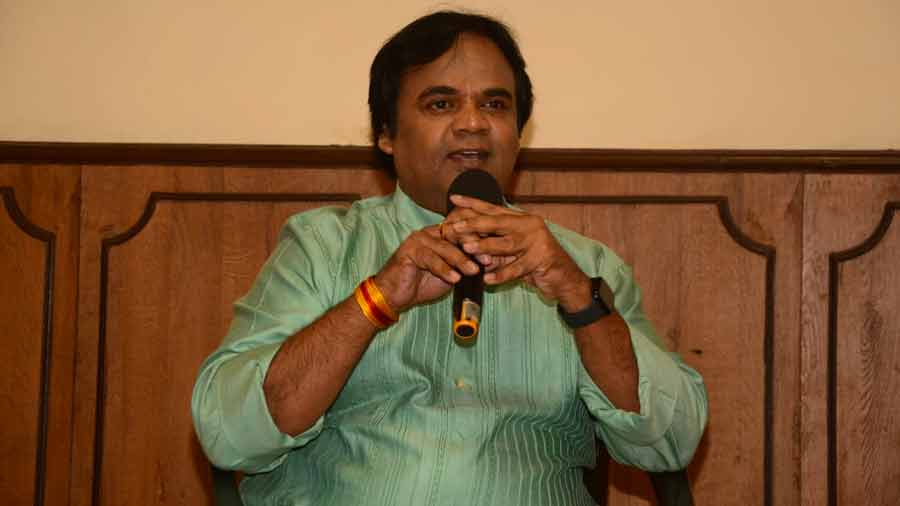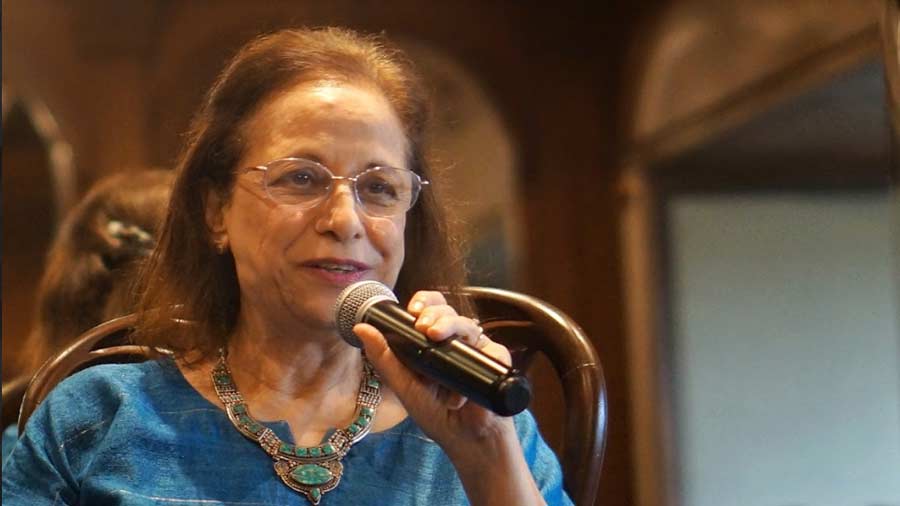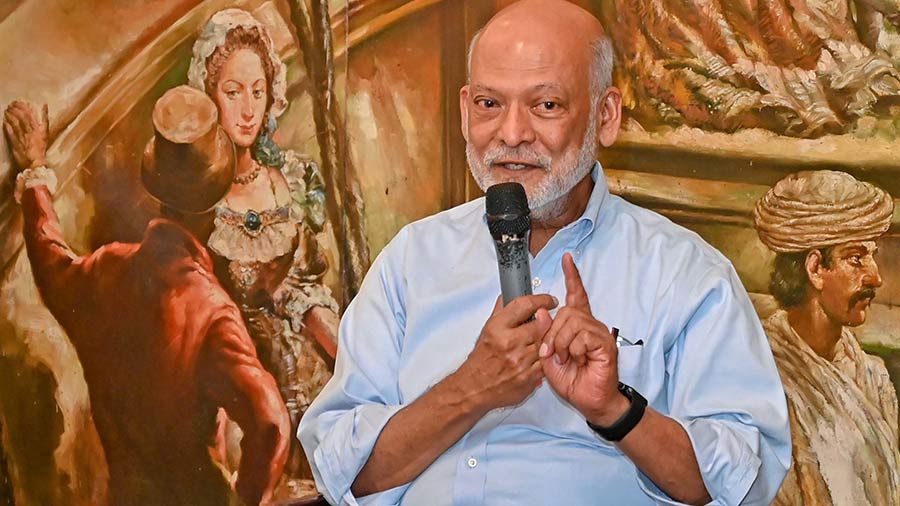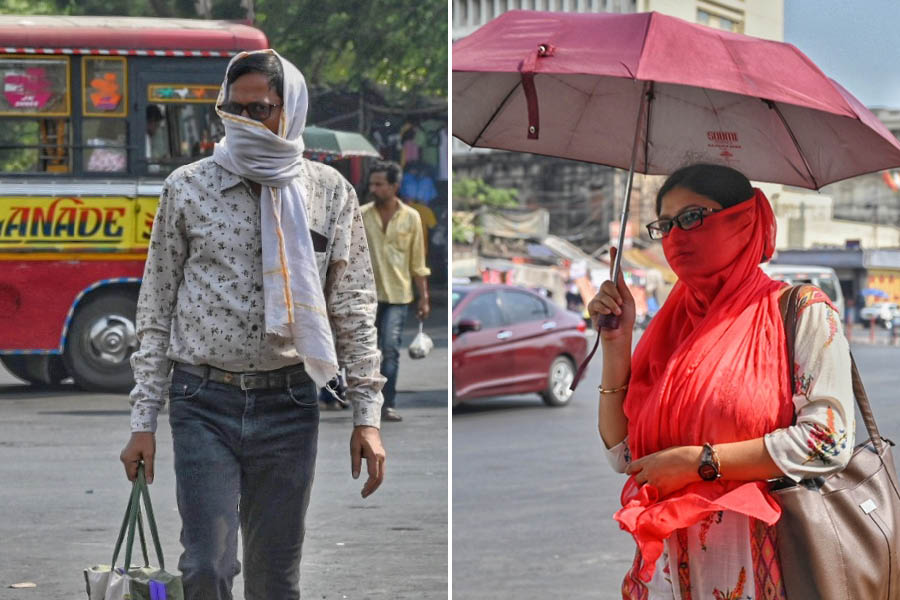Aalok Shrivastav has carved a niche for himself in the world of arts. Known for his passionate and evocative ghazals and poems, he has been awarded the Madhya Pradesh Sahitya Academy Award for his collection of ghazals called Aameen. He is also a scriptwriter and journalist and has worked with numerous media houses for nearly 15 years. The recipient of the International Pushkin Award and the Katha Hindi UK Ghazal Award, his works have been recited by luminaries such as and Amitabh Bachchan, Shankar Mahadevan, Sonu Nigam, Kailash Kher, Rashid Khan, Shubha Mudgal, among others.
At the latest session of Prabha Khaitan Foundation's boutique initiative Kalam, held in association with Shree Cement Limited, Shrivastav discussed his craft, career and life with Deepa Mishra, Ehsaas Woman of Lucknow at The Bengal Club.
The welcome note was delivered by Bishambhar Newar, the director of Taaza TV, followed by the presentation of a short video on Shrivastav.
Growing up with ghazals
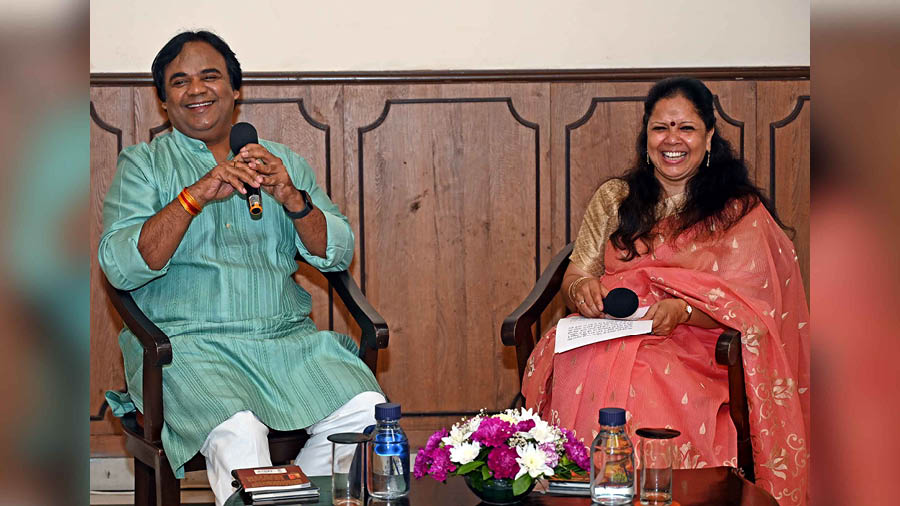
Shrivastav in conversation with Deepa Mishra
Beginning the conversation with the recitation of one of his most famous ghazals, Tumhare Paas Aata Hun Toh Saanse Bheeg Jaati Hai, Shrivastav noted that growing up in a joint family in Vidisha, Madhya Pradesh, was conducive to him learning Urdu because it was a language that was all-pervasive. Both of his parents could speak Urdu and his elder brother, who is a singer, was also fluent in Urdu. Fascinated by the works of poets like Bashi Badr — who later became his mentor, Govind Arya Nishat, Nida Fazli and Gulzaar as well as singers such as Mehdi Hassan, Farida Khanum and Jagjit Singh, Shrivastav had decided early on that he wanted to be a writer, much to the disappointment of his father.
“Once after a beating from my dad, I went to my mom. I told her that whatever obstacles I face, one day I’ll become a writer and Jagjit ji and Pankaj ji (Pankaj Udhas) will sing my ghazals. Mom just replied with one word — ‘ameen’ — and that became the name of my first collection of poems,” said the poet.
‘Hum badlenge, waqt badlenge…’
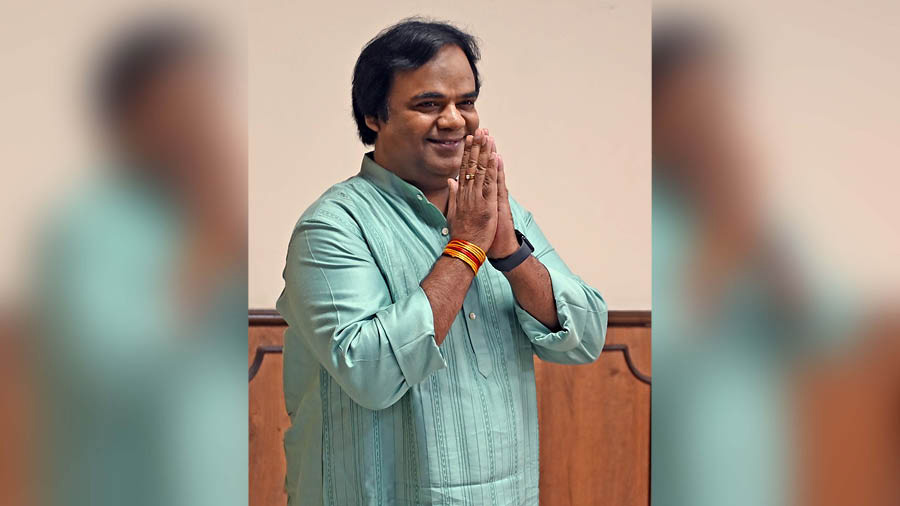
Shrivastav does not think that it is in his power to change society
At a time when Bhopal and its surrounding areas were witnessing the advent of progressive writing that spoke up against societal ills, Shrivastav was writing about families and relationships. When questioned about his decision, he would always respond by saying that he believed in transforming oneself before transforming the world.
“When I was a child, I used to go to Gayatri Shaktipeeth, and I used to hear the saying ‘hum badlenge, waqt badlenge’(times will change when we do), over there frequently. I used to tell those who questioned me that it’s not in my power to change society. But I can change myself. I decided that I’ll start writing about me, my family and about the social fabric of a family,” he elaborated.
Staying authentic to one’s craft
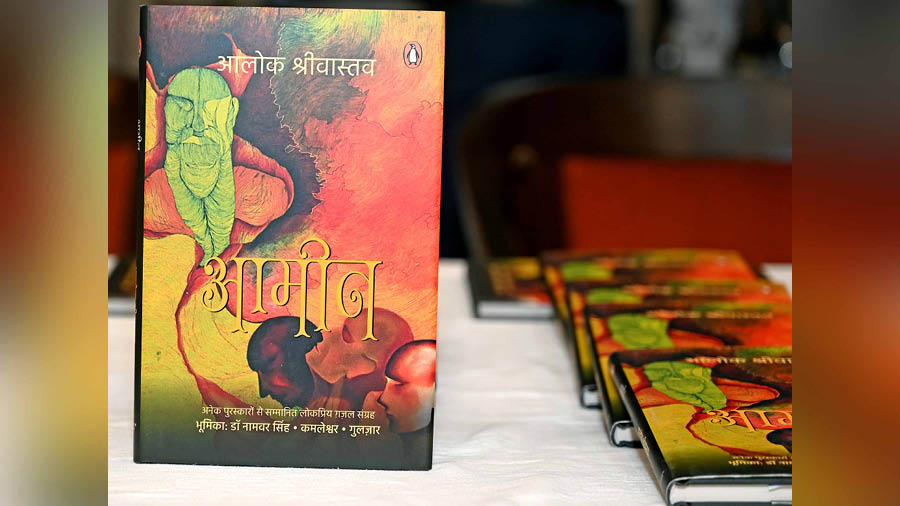
‘Aameen’, a collection of ghazals by Shrivastav
How have literary awards and recognition helped Shrivastav in staying motivated, driving him to keep producing great literature? “I believe that when you’ve won an award, you have to keep proving yourself to the ones who chose you. Whenever I was chosen for any recognition, I’d always feel happy, but I’d also feel that I shouldn’t disappoint them, so that their credibility isn’t questioned. I’m always conscious of the work that I do. Once I had written a song for a film based on the briefing that I had received. This was shortly after I wrote a song for a documentary by Vinod Kapri called Can’t Take This Sh*t Anymore, which won the National Award. But later I felt that the song wasn’t good, and I asked the director to remove the song. When he refused, I asked him to keep the song but to remove my name from it. Ultimately, when the film went to Eros and the duration of the film was reduced, the first thing to be edited out was my song,” noted Shrivastav.
Along with his success as a poet, he is also a successful writer of verse. Despite his collection of short stories called Aafreen receiving wide critical acclaim, Shrivastav did not follow it up with other collections. Explaining why he did not continue with it, he said that his profession as a television journalist did not allow him the space that writing stories requires. “The specialty of ghazals is that they can be created in parts and don’t require the kind of involvement that writing a story would require. Stories require deeper thought and dedication,” he added.
The event came to a close with Shrivastav reciting some more of his ghazals answering questions from the audience. Esha Dutta, honorary convenor of Northeast affairs, Prabha Khaitan Foundation, delivered the vote of thanks.
Audience speak
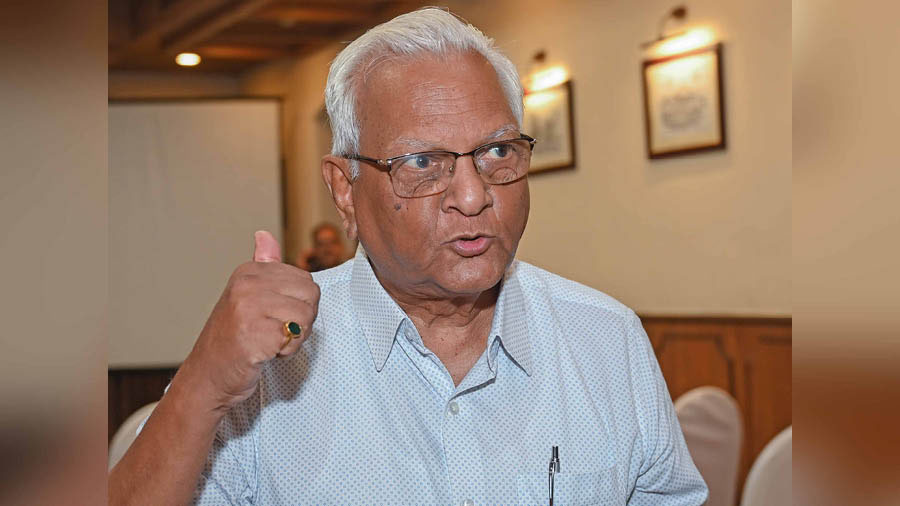
Bishambhar Newar
The evening was extremely informative and important. The messages that our literature has spoken through films and poems are being kept alive because of evenings and meetings like this.
Bishambhar Newar, director of Taaza TV
